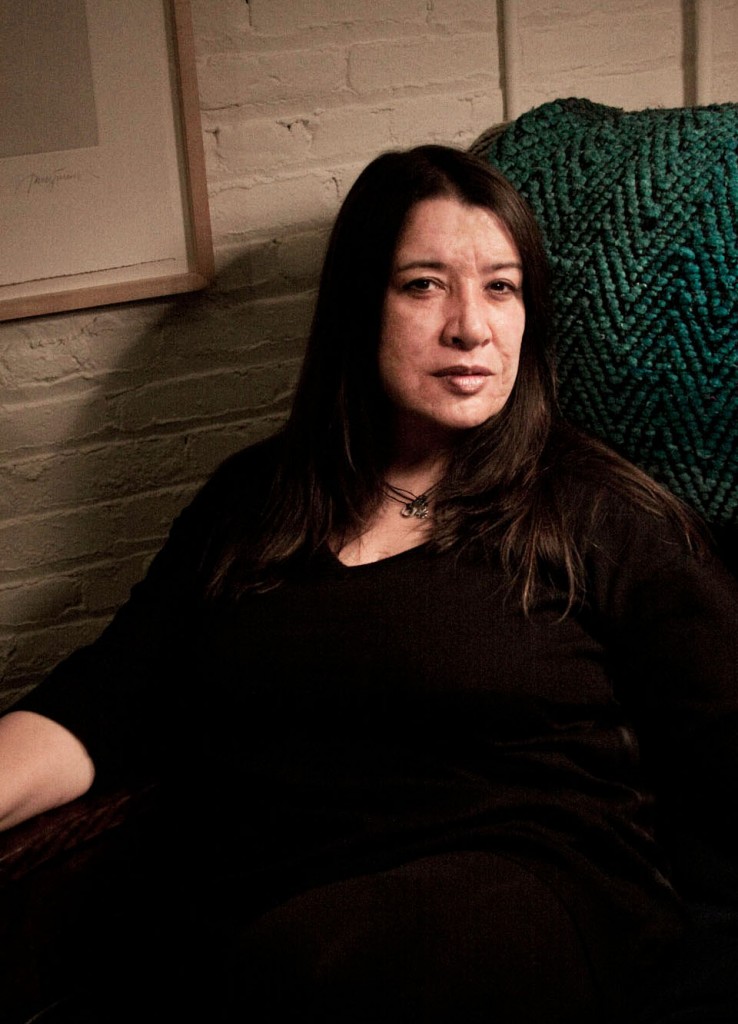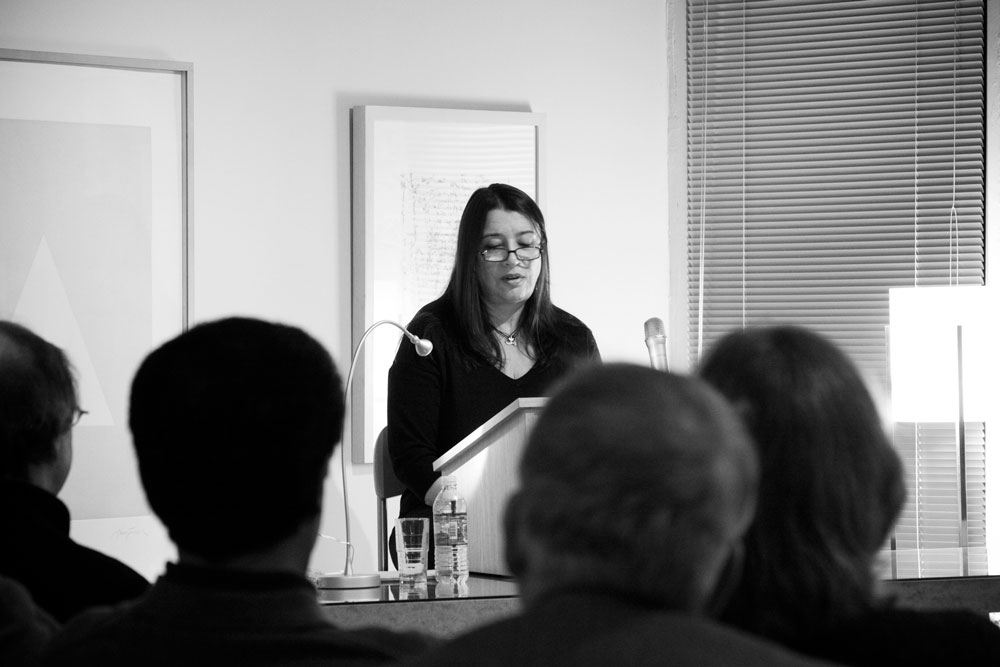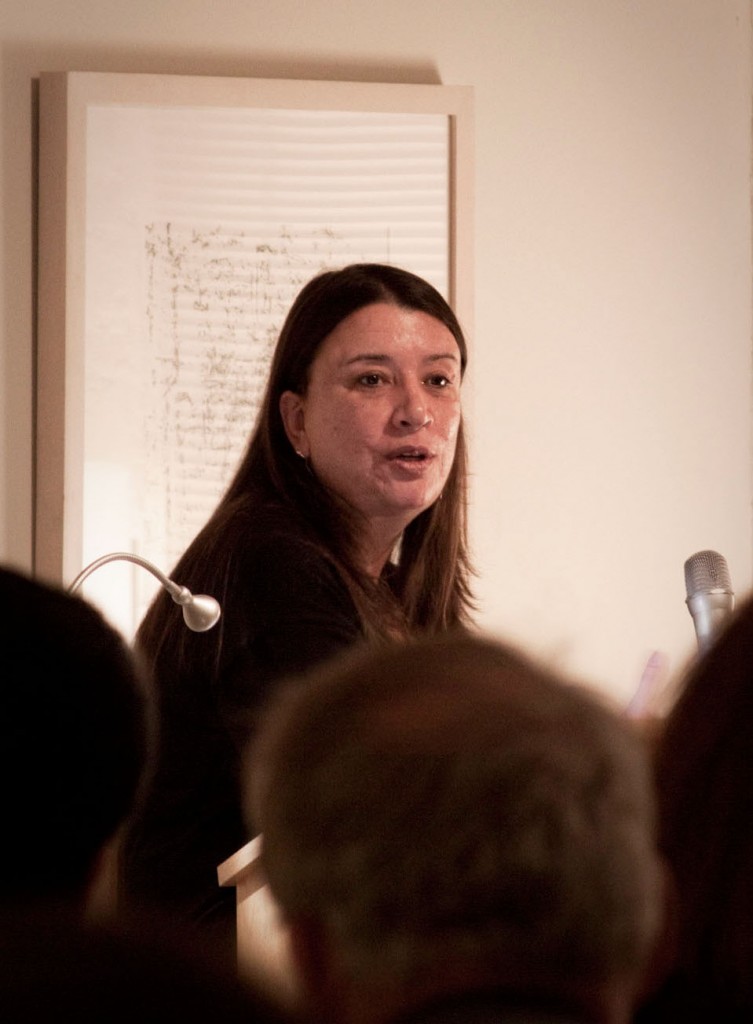Beverly Pérez Rego Writes like She’s Mad
by Elizabeth Hoover / March 14, 2011 / No comments
Poet and translator Beverly Pérez Rego was born in Halifax, Canada to a Venezuelan father and a British-Guyanese mother, both of whom were in the foreign service. Her peripatetic upbringing took her to Brazil, Puerto Rico, Miami, and finally Caracas, Venezuela. There she received a degree in Literature from Universidad Central de Venezuela. In this interview, she speaks about how she is haunted by a sense of “uprootedness,” without allegiance to any single tradition.
This uprootedness may also be the source of her poetry’s fierce independence. She draws inspiration from diverse sources, including Venezuelan poets such as José Antonio Ramos Sucre as well as Anglo-American poets such as Mark Strand and Louise Glück, whom she has translated.
“Disown me, father…free me of the knots on the seductive pages,” she writes in her 1992 collection Artes del vidrio (Art of Glass). This tug-of-war with the patriarchal literary tradition marks much of her work, as does a bold and forthright means of address, an approach she calls “masculine” in this interview. She also explains how a 14th century book inspired her latest collection The Book of Falconry, why she thinks Venezuelan literature is a paradox, and how women writers create subversive texts.
How did your international upbringing affect your poetry?
My poetry is about uprootedness itself. What will always come out in my poems is a deep sense of solitude. It’s about not being accompanied by tradition or a specific set of concepts or words that will define you or give you a root.
You said you wrote your first sonnet in English, yet now you write exclusively in Spanish. How did you decide to write in Spanish?
I was forced to; I was colonized. One of my professors, the writer Adriano González León who is very well-known in Venezuela and died a few years ago, asked to see something I wrote. I said, “Well, it’s in English.” And he said, “Why are you writing in English in Venezuela? No one will understand you.” And the English-speaking world suddenly seemed very remote and unnecessary, something I didn’t have to cater to, so I switched.
Has working as a translator helped you to bridge the divide between Spanish and English?
When I translate, I sort of heal the wound of losing one language to another. I also free myself from myself. I’m allowed to live in the voice of another, and it’s the most intimate form of reading. It’s very liberating.
You began your reading at COA/P by quoting from a colonial book, a 14th century book about falconry. Where did you encounter that text?
The image of the falconer holding the hawk with its wings spread out obsessed me for years. Later I was working in a library and there was an ancient falconry book in the rare book section. It had instructions on how to treat the bird with honor and descriptions of the relationship between the falconer and hawk. It was obvious that I had found something on which I could build a book. The original text says you may allow the bird to fly as far as he can, but he can never sleep outside of your house. The bird is the slave of the falconer, and at the same time, it’s like his soul. It’s a very rich image.
My whole book of poetry is about the concept of prey, or of being preyed on, or being a bird of prey.
When you read that epigraph, you said you wanted to be blessed by the tongues of Spanish kings.
The writer of the manual, as most writers of the time, did things by commission. So no work would be taken if it weren’t with the blessing of the king or church. So my reading of it is symbolic; there is part of me that’s still catering to the rule of the Spanish.
By catering to the rule of the Spanish, are you refusing the idea of being a post-colonial writer?
You can’t put aside all these categories of colonial or post-colonial, but in poetry they don’t mean much. The only thing you can do is be a witness to yourself, your life, and your language. I mean witness in a sense of testimony. Poetry is a testimony of your passage through life. The only thing you can aspire to is to be as faithful as you can to what you witnessed. A witness is also someone who does more than observe—they take part in the experience. So being a witness can also be moral issue, because you have to take a stand.
What about the category of feminist writers? Do you see yourself in that category?
Maybe. I don’t know how men or anti-feminists have been so crafty as to actually make feminism no longer fashionable. But I love to provoke it in literature. When I read my poem about a Yoruba goddess who avenges wronged women, it causes such a reaction. She’s an avenging goddess who takes on masculine traits—those which could be seen as the worst of the masculine traits—and makes them her own, and all of a sudden it’s shocking and terrible.
This raises the question, what is feminism? Is it standing up for your rights, or assuming all the male characteristics that we despise: unwarranted aggression, violence, dominance? Is there any other way of ensuring you get your due or are respected, if not by using the tools that men have used for so many centuries?
Pérez Rego is the author of six books of poetry, most recently The Book of Falconry. This winter she spent three months in residency at City of Asylum/Pittsburgh as part of a partnership with the University of Iowa International writing program.
Are you conscious of your gender when you write?
Constantly. My writing is not a place where I want to lose myself and become genderless. I am fully conscious that I’m a woman trying to assume a male approach, meaning I try to use an imposing voice and take on subject matter that I don’t see explored by my contemporaries. I try to write like I’m mad.
When I got the call telling me my book of poetry on falconry won an award, they told me they thought the book had been written by a man. They thought that was a compliment. Of course it’s not a compliment. However that’s something I’ve tried to explore ever since: what does that mean that someone thinks I write like a man? Should I pursue that, deny that, or stop writing completely? Maybe assuming a male voice means I sound like the male poets of my tradition that I love so much. I think the fact of being a woman, the femaleness, will always prevail—it’s too powerful.
Female writers are often dismissed for being overly emotional–
No, it’s a wound. We live with it so we can deal with it. The whole power structure and everything is compensation for the wound. The wound can be physical; we are born with a wound, as opposed to men, who are born with a tool for puncturing. Or it’s the basic wound men and women share of separation from the womb, or the expulsion from paradise, or the fact that we’re going to die and this is senseless.
Who are the women writers who have influenced you?
About ten years ago the Venezuelan poets Yolanda Pantin and Ana Teresa Torres wrote a book called El hilo de la voz (The Thread of the Voice). It was groundbreaking because they established a genealogy of female writers.
While Pantin was writing the book, I told her I didn’t feel anchored by any woman writers. Four or five male writers seem to have set the tone and direction of my writing, and it wasn’t something I was comfortable with. She told me she would prove me wrong. I was astounded when I started rereading women writers such as Enriqueta Arvelo Larriva and Ana Enriqueta Terán, and other writers that have only recently been published and anthologized, such as María Calcaño who wrote in the fifties and forties. I realized I was replicating or echoing them without knowing it.
In your talk you also said you see Venezuelan literature as a paradox. Why is that?
Because some of our writers’ work is very ambitious, and yet we have locked ourselves in.
It’s very much a part of Venezuelan identity, this isolation and self-sufficiency, maybe because of the oil. I don’t think I know a single Venezuelan writer with an agent. There’s a joke in Venezuela that there are more poets than people. How do you differentiate yourself from the mass?
In the 80s, writers were immersed in “purity.” You didn’t care about publishing—that’s for the future, or for somebody else to take on. It’s something that borders on mysticism.
That’s interesting that you mention mysticism because the figure of the shaman appears in your work.
The shaman speaks from a place that is very ancient, and a place of great power. There are two paths a poet can take. You can go towards the path of the damned, poéte maudit, like Baudelaire. That is when you pay a very gruesome price for your art. Or you have the path of the magician, where the poet just takes things out of his sleeve and seems not to suffer or pay any price. There’s some of that in shamanism, in that the poet comes out unscathed. It’s not about his individuality. He is the voice of a community and a tradition, and it’s something sacred.
Which did you choose?
The sacred—the shaman. So I’d like to think. The only problem is that you don’t get to choose, though. You have no say in how it will play out.
You are speaking for a community?
Whether I want to or not, I do. First, for the language of my own particular images. Second, the tradition itself. Third, for language in general. Finally, the immediate tradition I drink from, which is Venezuela.
Read Elizabeth’s bio.







